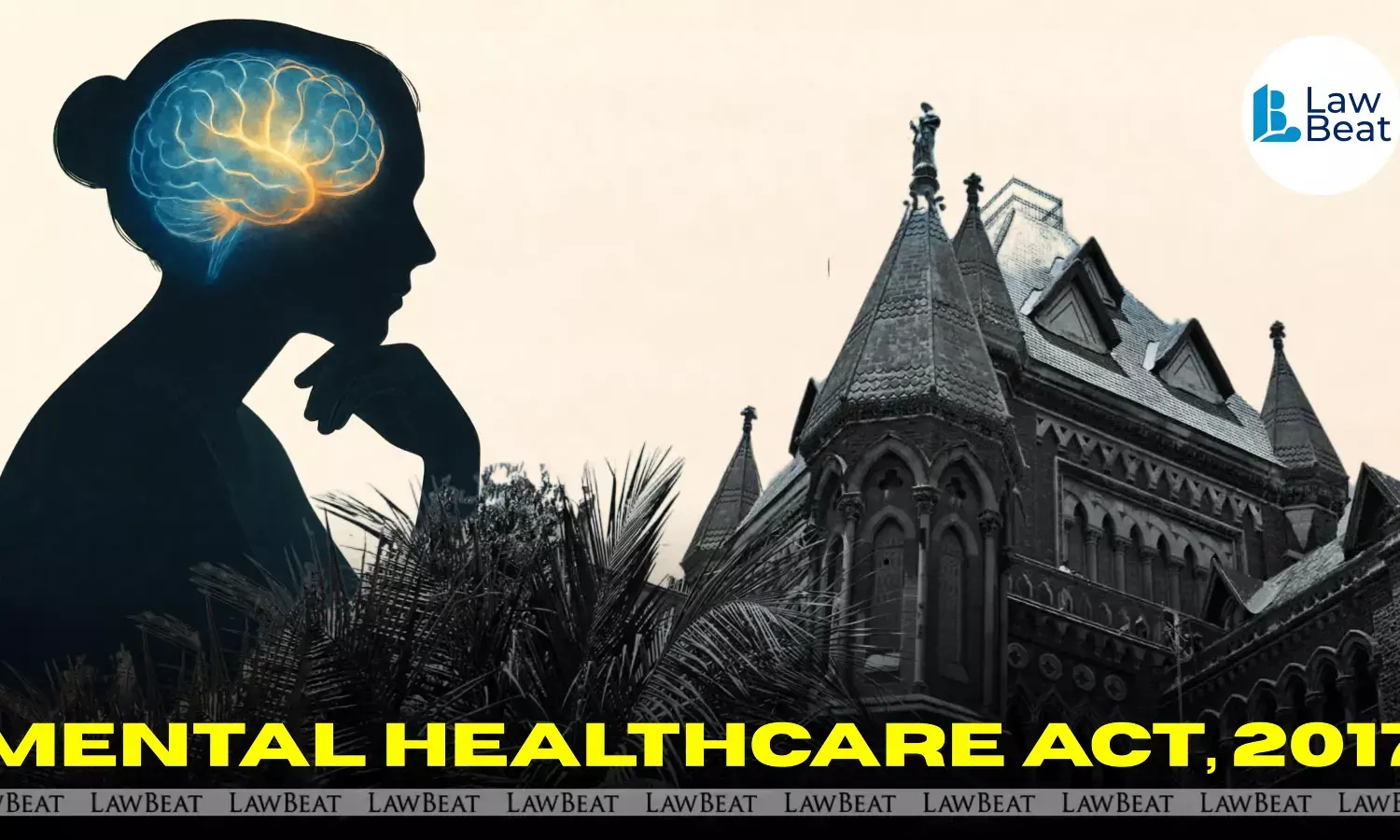Need for Strong Mechanism to Support Mentally Ill Persons Living Alone: Bombay HC

Bombay High Court, Mental Healthcare Act, 2017
The Bombay High Court has observed the pressing need for a comprehensive system to support mentally ill persons who live alone and have no family or relatives to look after them. The court noted that the existing mechanism is inadequate to deal with such situations and stressed the importance of creating a permanent framework to address these concerns.
A division bench of Justices Revati Mohite Dere and Neela Gokhale made these observations while hearing a guardianship petition filed on behalf of a man diagnosed with schizophrenia.
The court interacted with the individual through video conferencing during the proceedings and noted that he appeared to be “a fairly intelligent person.”
It also recorded that the individual expressed gratitude towards the hospital staff and members of the District Legal Services Authority (DLSA) for their assistance. The bench remarked that while interim arrangements could be made, the absence of a long-term support structure for persons with mental illnesses who lack family care remains a systemic issue requiring urgent attention.
The petition was filed by a friend of the man, seeking the appointment of a legal guardian. The petitioner stated that the individual, referred to as Mr S, was living alone and unable to take care of himself due to his medical condition.
On August 7, the court directed that he be admitted to the Regional Mental Hospital in Thane for treatment. Authorities, including the DLSA, the Collector’s office and the local police, were asked to ensure compliance with this direction.
Subsequently, a medical report dated August 19 was submitted to the court, confirming that Mr S had been receiving proper care, was eating well, had gained weight, and was generally cooperative, though he occasionally made irrelevant statements. The report also recommended that a detailed psychological assessment be carried out at JJ Hospital, Mumbai, to understand his mental state and personality structure.
After reviewing the report and speaking with Mr S, the bench concluded that the appointment of a temporary legal guardian was necessary in the absence of any immediate family.
Accordingly, the Secretary of the DLSA was appointed as his guardian with responsibility over both his person and property until further orders. Directions were also issued for safeguarding his assets and for continued medical evaluation.
The court has scheduled the matter for further hearing on September 11, when it will consider the progress of treatment and steps towards establishing a broader institutional mechanism for similar cases.
The observations of the court gain significance in the context of the Mental Healthcare Act, 2017, which recognizes the right of persons with mental illness to access mental healthcare and treatment from services run or funded by the government.
The Act places a statutory obligation on state authorities to provide mental health services and to ensure that persons are not left without care or support.
It also provides for the appointment of nominated representatives to take decisions on behalf of individuals who are unable to make informed choices regarding treatment and personal care.
Despite these provisions, the bench noted that practical arrangements for those who have no family or support system remain inadequate, warranting immediate intervention and planning by the state.
The court also recalled that similar issues had come before it in earlier proceedings where the need for rehabilitation facilities, such as halfway homes or community based residences, was highlighted.
Absence of such measures has resulted in prolonged institutionalization or neglect of persons with mental illnesses who are otherwise fit to live outside hospitals but have no means to support themselves, the bench acknowledged.
Case Title: Petition concerning legal guardianship of Mr S (schizophrenia patient)
Order Date: August 21, 2025 (interim observations); Guardianship order issued August 29, 2025
Bench: Justices Revati Mohite Dere and Neela Gokhale
